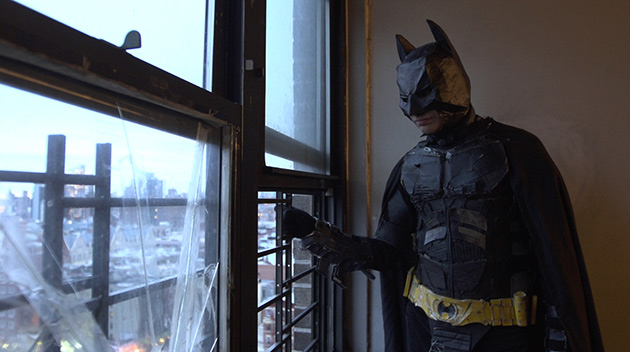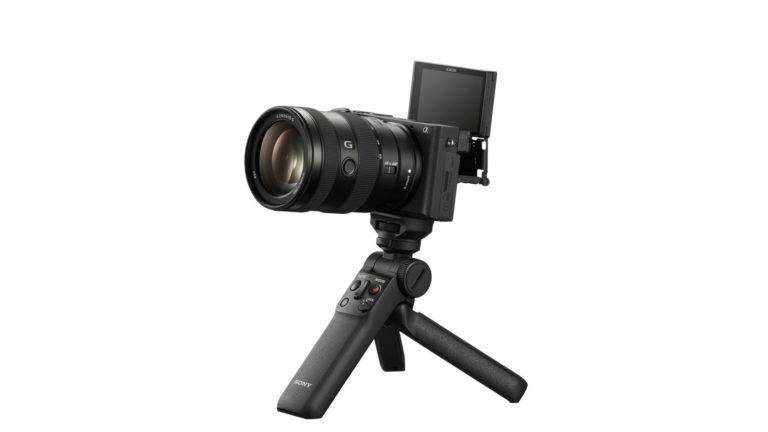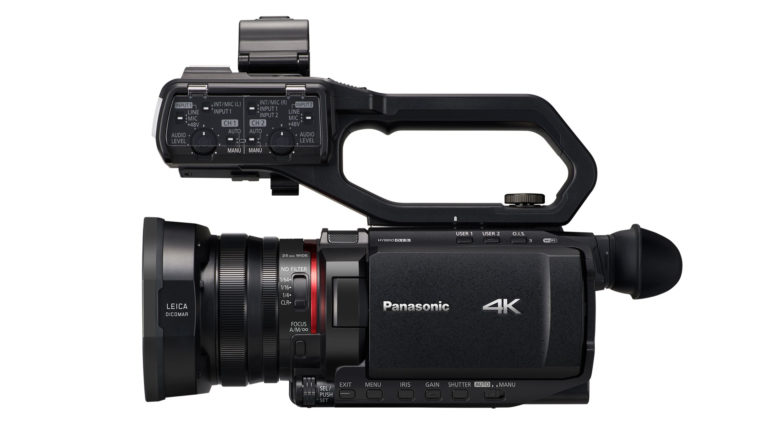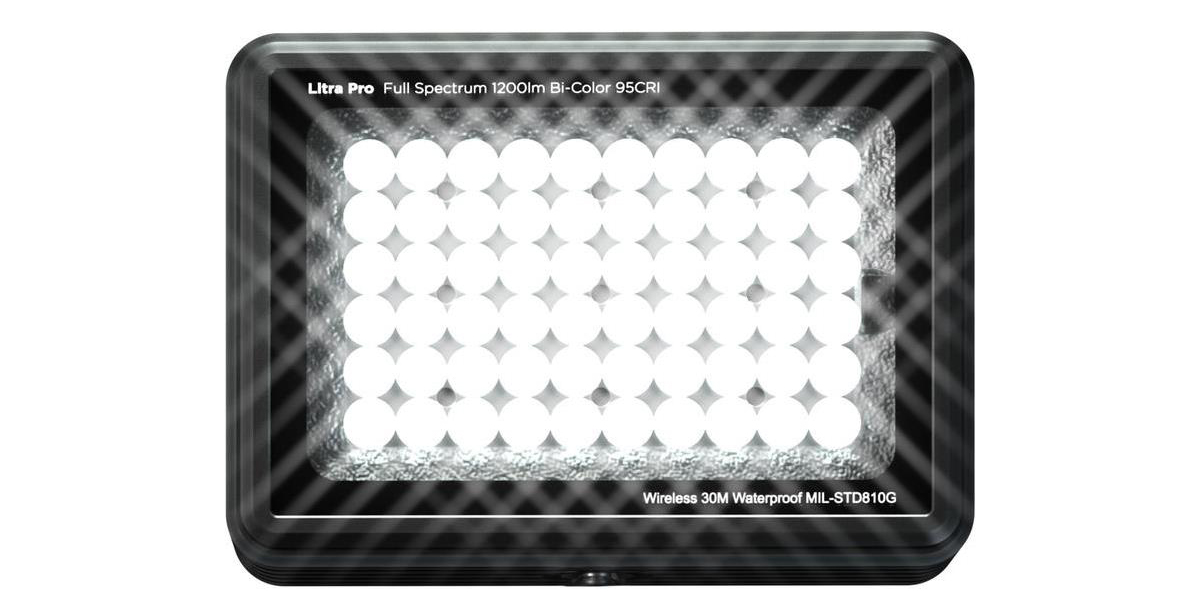Capturing the Flavor of Newfound Freedom for Formerly Locked-up Movie Buffs in New York City
Crystal Moselle’s documentary The Wolfpack opens with six long-haired teenage brothers reenacting a scene from Reservoir Dogs, complete with guns made from duct tape. As it turns out, these boys have been forced to become shut-ins by their father, Oscar, who’s locked them into a large apartment in a housing project on the Lower East Side of Manhattan, where they are to be home-schooled by their mother, Susanne. At one point, he went a year without letting them leave—but he had a huge DVD collection. The brothers became obsessive film geeks, dreaming of becoming filmmakers themselves. Moselle happened upon the Angulo family when they were tasting the first fruits of freedom, and she filmed them over a five-year period. Her film leaves many questions open, but it’s something far greater than a gimmicky portrait of a bunch of guys who like imitating Tarantino films: a portrait of the yearning for freedom. It also benefits greatly from Moselle’s startlingly close-up camerawork. Studio Daily spoke to the director in early June.
When you first met the Angulo boys, were you looking for a subject for a feature-length documentary?
Crystal Moselle: No! I was intrigued by their presence. I chased after them down the street and met up at a crosswalk. I learned they’re all brothers. Then they asked me what I did for a living. I told them I’m a filmmaker and they said they’re interested in getting into the business of filmmaking. We became friends.
How long did it take you to realize how much material there was in their story?
I think it took me years. At first I was just following them and planning on doing a short. As we got to know each other more and gained each other’s trust, I realized they wanted to tell their story more. And it changed.

Krsna Angulo, Jagadisa Angulo, Bhagavan Angulo, Mukunda Angulo, Narayana Angulo and Govinda Angulo in The Wolfpack. Photo courtesy Magnolia Pictures.
How did their parents feel about being filmed?
They seemed to be OK with it. I think their dad liked being filmed, honestly. I think he saw the film as an opportunity for his children.
Even though the film mentions that he hit his wife?
He has this openness about things and an acceptance about what’s happening. He seems to respect an honest portrayal of his family.
How self-conscious is Susanne about the fact that she began as a free spirit and wound up in a very controlling relationship?
I think she isn’t self-conscious about that at all. She’s gone through a beautiful transformation. She’s very open about the way things used to be and the way things are now. She’s really focused on the present and future. The tables have turned within that relationship, and she doesn’t feel controlled anymore.
How could Oscar afford to buy all those DVDs?
He bought a lot of them on the street. Some of them were from sales. They would borrow them from the library. A lot of the movies they had were recorded from TV on VHS tapes.
Do you see the Angulos as representative of their generation in some way? I’m thinking of the fact that they became obsessive cinephiles long before they saw a movie in the theater.
It’s hard to say. We all have our different forms of isolation, whether it’s Facebook or staying in with other forms of social media. But once they got out and were able to see films in the theater, they were hooked. Now they go all the time.

Director Crystal Moselle shooting The Wolfpack. Photo by Megan Delaney; courtesy of Magnolia Pictures
You operated the camera for most of the film. Did this make it easier to establish a level of intimacy with the family?
Yes, I believe so. Being with them, immersed in their world, was helpful in creating the intimacy in the film.
What kind of camera did you use?
I used a [Canon] 7D, which is a small, unobtrusive DSLR. I opened up towards the second and third act and acquired a 16–35mm lens. So it was an organic process—I wound up using a C100, which I think has a better look. There’s a natural progression within the filmmaking, from a more claustrophobic look to a more open feeling towards the end of the film.
How hard was it to decide what home movie footage to use?
Pretty hard. There was about 500 hours to go through.
What do you think appealed to them in particular about Quentin Tarantino’s films?
I think there’s a real bad-ass vibe to them. Since they were in this environment where they were powerless, his films helped them feel power. They gave them dreams they couldn’t live out in that environment.
Is Tarantino himself aware of the film?
He is aware. I don’t know if he’s seen it. He has a screener. We’re waiting to find out if he’s seen it.
What happened when the police came and thought they had a cache of real weapons? [This event does not appear in the film, but its aftermath is depicted.]
I’m not really sure why it happened. My assumption is that they may have been out in their building with their fake guns. But I wasn’t around for that. It was forbidden in my presence.
Was it immediately apparent to you how smart and articulate the boys were?
Yes. From the second I met them, the way that they spoke was like nothing I’d experienced before in my life.

Narayana Angulo, Govinda Angulo, Jagadisa Angulo, Bhagavan Angulo, Mukunda Angulo and Krsna Angulo in The Wolfpack. Photo courtesy Magnolia Pictures.
The documentary is fairly short. Most films, both narrative and documentary, start out with a much longer cut. I noticed that there’s information in the press kit which is not included in the film. Did you wind up paring this down heavily?
We included information about where the boys are now. We had to cut out Quentin Tarantino’s birthday celebration. There was a storyline about their sister, who has Turner’s syndrome, which we had to cut out. It’s really about the boys.
At what point did you settle on the Reservoir Dogs reenactment to begin with?
Very early on. We went back and forth with it. I was never afraid people would see it as a gimmick. I’m more afraid people will think it’s fake. Once people see my shaky camera work, they realize it’s real.
Were you always sure the film would end as optimistically as it does?
I had the intention that it would, but I didn’t know how it would turn out.
The Wolfpack opens today in New York City and Toronto and expands through the summer. To see theater listings, visit the film's official website.
Crafts: Shooting
Sections: Creativity
Topics: Project/Case study Q&A 7d c100 Canon crystal moselle documentary dslr
Did you enjoy this article? Sign up to receive the StudioDaily Fix eletter containing the latest stories, including news, videos, interviews, reviews and more.










Leave a Reply